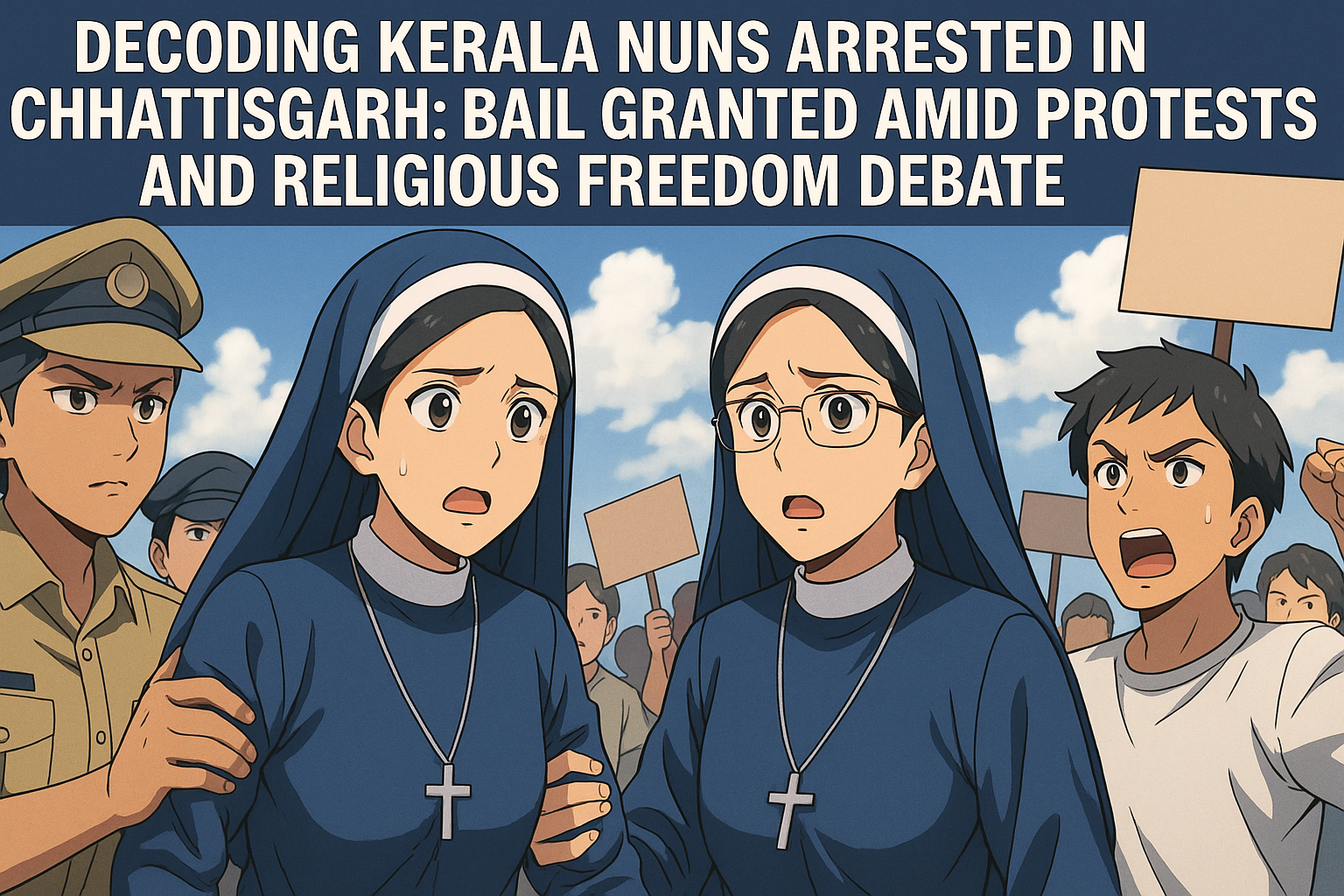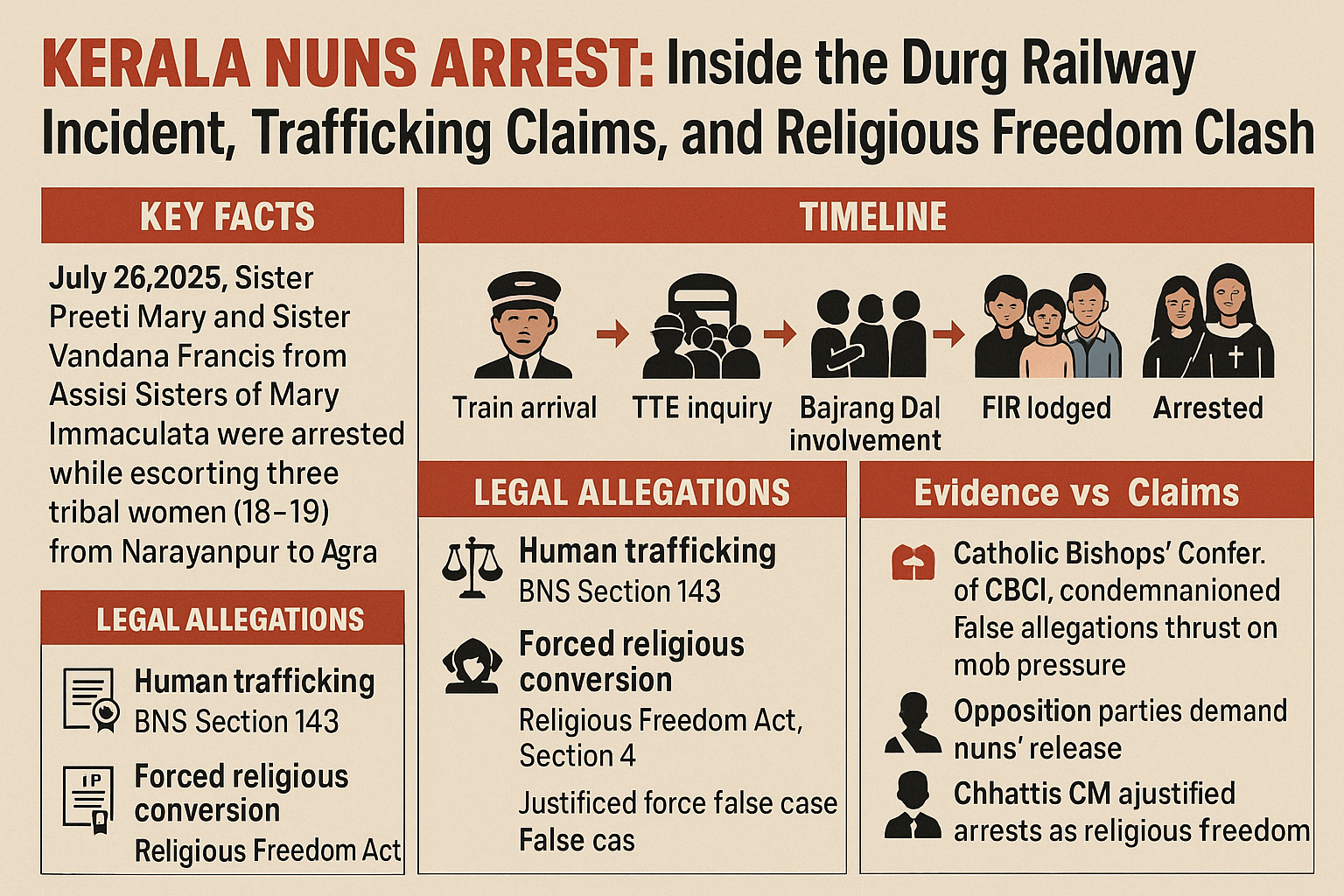On August 2, 2025, a special NIA court in Bilaspur granted conditional bail to Kerala-based Sisters Preethi Mary and Vandana Francis, sparking widespread applause from Christian communities amid persistent protests and political scrutiny.
WHO
- Preethi Mary (45) & Vandana Francis (50) — nuns from the Assisi Sisters of Mary Immaculate, Kerala
- Sukhman Mandavi (19) — tribal youth also granted bail
- Protesting actors: church leaders, Kerala MPs, civil society, and opposition figures
WHAT
- Charges: human trafficking and forced religious conversion.
- Bail granted with Rs 50,000 bond, passport surrender, and travel restrictions.
WHEN
- Arrest: July 25, 2025
- Bail granted: August 2, 2025
WHERE
- Arrest: Durg Railway Station, Chhattisgarh
- Bail court: NIA Special Court, Bilaspur
- Protests: Across Kerala, parts of Chhattisgarh, and Karnataka
WHY
- Initial charges based on minor’s complaint, later retracted.
- Defense proved travel was voluntary and legally documented.
- Prosecution failed to justify custodial interrogation.
HOW
- Bail granted due to lack of custodial need, insufficient documentary proof in FIR.
- Conditions include surrendering passports and not leaving the country.
2. Protest Pulse: After Bail, Rally Fervour Continues
Kerala Mobilization
- Thiruvananthapuram: Massive protest led by Catholic Forum and clergy.
- Thalassery: Archbishop demanded central action.
- Thrissur: Church leaders met BJP leadership demanding protection for minorities.
National & Inter-State Protests
- Belagavi: Silent protest led by Bishop Fernandes.
- Durg: Political workers assembled near jail in support of bail outcome.
Political Energy
- CPI(M) and UDF mobilizing protests August 3–4 across Kerala.
- Emphasis on minority rights and alleged legal misuse.
3. Why This Bail Matters: Decoding the Impact
Legal Precedent
- Highlights courts’ skepticism toward FIRs lacking corroboration.
- May influence future treatment of anti-conversion cases.
Political Symbol
- Reinforces Kerala’s political and religious resistance to perceived persecution.
- Sparks internal tension between central BJP and state-level units.
Next Phase
- Legal teams preparing to challenge FIR and seek dismissal.
- Demands intensify for reform of anti-conversion statutes.
4. What’s Next?
- Release proceedings underway, pending paperwork and bond execution.
- Judicial hearings likely to continue for several weeks.
- Wider civil discourse emerging on tribal employment rights, religious freedom, and legal fairness.
Closing Note
The bail granted to the Kerala nuns isn’t just a turning point for them—it’s a clarion call about religious freedom, legal safeguards for minority groups, and the growing need to decouple law enforcement from vigilante narratives. Will India uphold due process or perception?
India | Kerala



